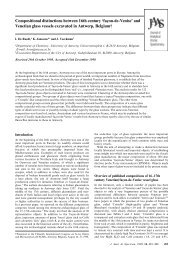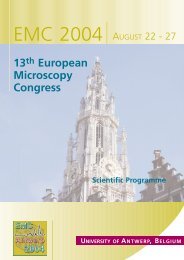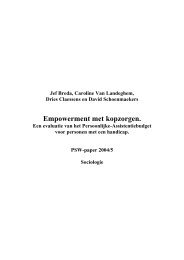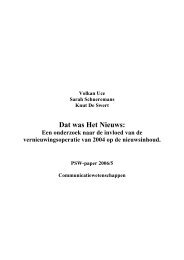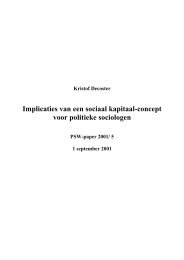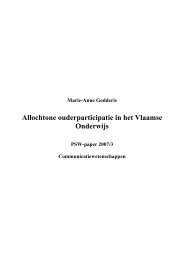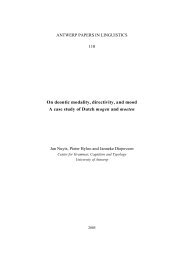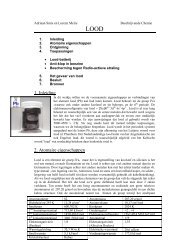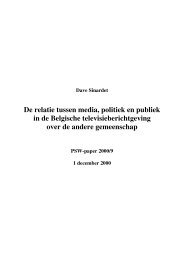Fruit-frugivore interactions in a Malagasy littoral forest - Universiteit ...
Fruit-frugivore interactions in a Malagasy littoral forest - Universiteit ...
Fruit-frugivore interactions in a Malagasy littoral forest - Universiteit ...
Create successful ePaper yourself
Turn your PDF publications into a flip-book with our unique Google optimized e-Paper software.
Chapter 5<br />
data are needed we believe this study along with others from the <strong>littoral</strong> <strong>forest</strong> provide a<br />
conclusive and solid data base to aid <strong>in</strong> formulat<strong>in</strong>g conservation plans now and thus<br />
urgent and active protection should no longer be delayed any further <strong>in</strong> time.<br />
CONCLUSION<br />
The <strong>littoral</strong> <strong>forest</strong> is be<strong>in</strong>g cleared at an alarm<strong>in</strong>g rate while our understand<strong>in</strong>g of its<br />
ecology is still <strong>in</strong>complete. Multi-discipl<strong>in</strong>ary approach is required <strong>in</strong> the near future to<br />
unravel further <strong><strong>in</strong>teractions</strong> and to ref<strong>in</strong>e conservation action plans. Forest restoration is a<br />
necessary activity but simultaneously efforts should be focused on conserv<strong>in</strong>g the<br />
<strong>in</strong>tegrity of exist<strong>in</strong>g primary <strong>forest</strong>s, as there is no guarantee that all species will recolonize<br />
after disturbance. At the moment, less than 3% of Madagascar has a protected<br />
status (Wright 1997b) and one third of the lemur species has already gone ext<strong>in</strong>ct<br />
(Godfrey et al. 1997). Up to date, the <strong>littoral</strong> <strong>forest</strong> is not represented <strong>in</strong> protected areas.<br />
This is an important and unique <strong>forest</strong> type due to its high endemism and biodiversity.<br />
Understand<strong>in</strong>g <strong>forest</strong> dynamics and unravell<strong>in</strong>g plant-animal <strong><strong>in</strong>teractions</strong> <strong>in</strong> degraded<br />
tropical ecosystems is essential if we are to conserve exist<strong>in</strong>g <strong>forest</strong>s and accelerate the<br />
process of re<strong>forest</strong>ation. It is necessary to urgently jo<strong>in</strong> forces <strong>in</strong> order to prevent that our<br />
and several other studies were a last testimony of what once was the <strong>littoral</strong> <strong>forest</strong>. We<br />
owe it to the future generations to protect this ecosystem, so they can take pleasure <strong>in</strong><br />
explor<strong>in</strong>g it further and so the endemic plant and animal species can persist and thrive<br />
here.<br />
ACKNOWLEDGEMENTS<br />
We like to thank Manon V<strong>in</strong>celette and Jean-Baptiste Ramanamanjato of the QMM Environmental<br />
team for provid<strong>in</strong>g detailed <strong>in</strong>formation on the environmental policy <strong>in</strong> the <strong>littoral</strong> <strong>forest</strong> and on the<br />
current activities of QMM. Many thanks as well to Jörg Ganzhorn, L<strong>in</strong>da Van Elsacker and Silvana<br />
M. Borgogn<strong>in</strong>i Tarli for their support <strong>in</strong> this research. The first author is supported by a grant from<br />
the Belgian Fund for Scientific Research, Flanders (FWO). We thank the Flemish Government for<br />
structural support to the CRC of the RZSA. The second author was supported by a doctoral grant of<br />
the Italian M<strong>in</strong>istry for Scientific Research (MURST) and the University of Pisa.<br />
146



